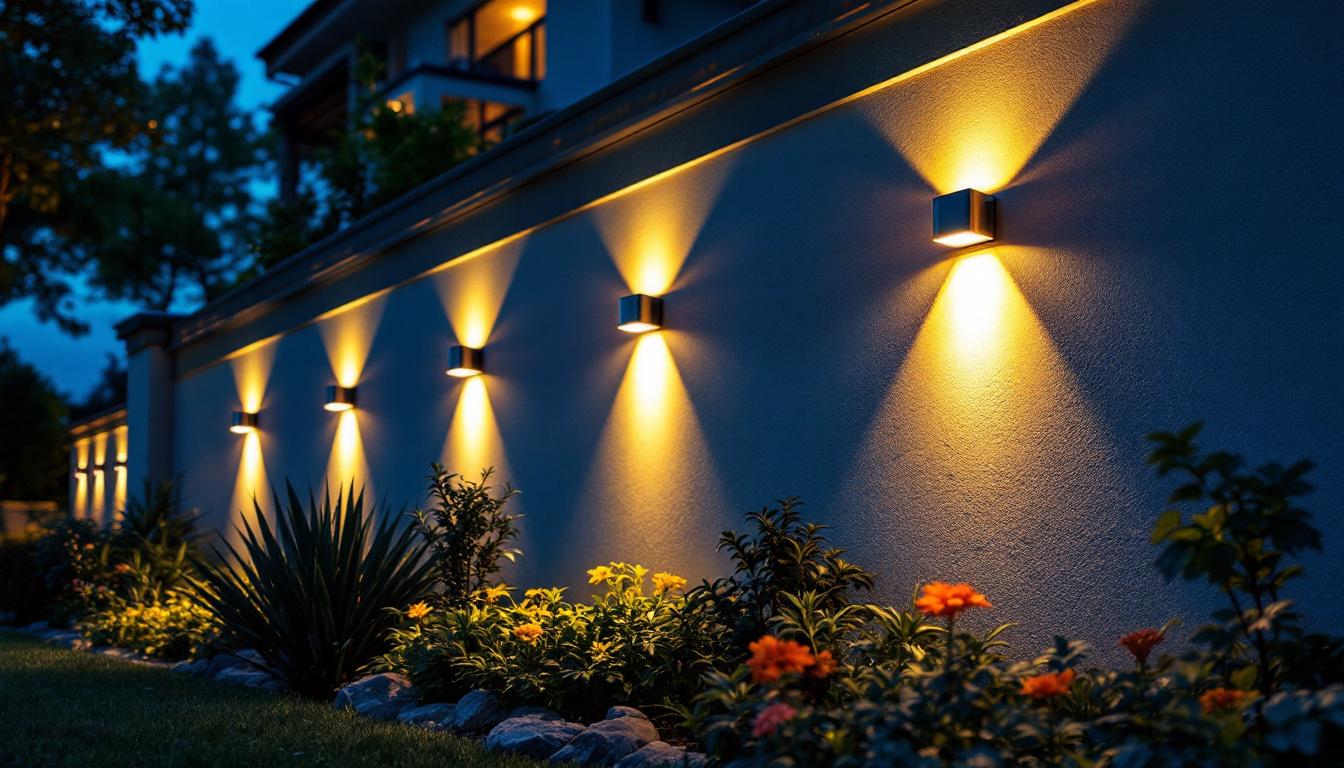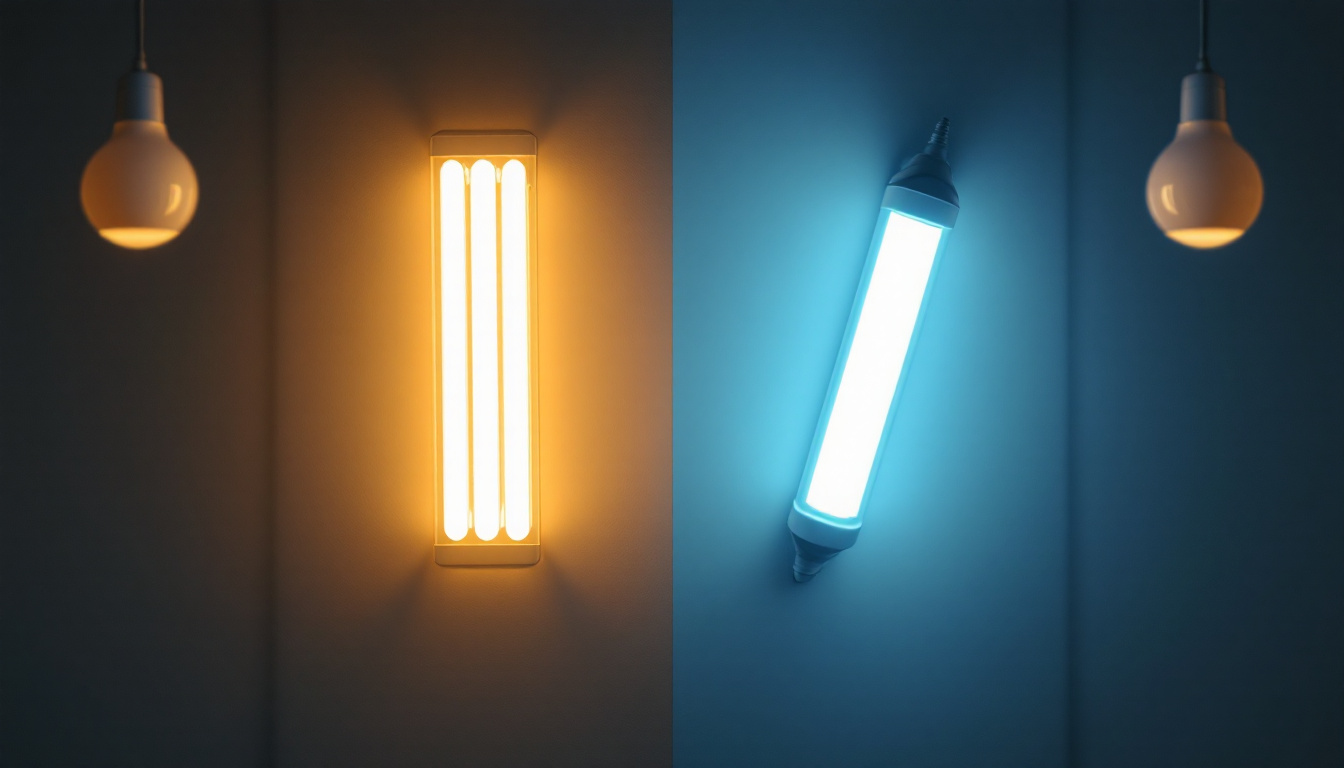
Lighting contractors are constantly seeking ways to enhance their services while also managing costs effectively. One of the most promising developments in the field of outdoor lighting is the advent of solar lights. These innovative solutions not only provide illumination but also offer significant cost-saving benefits for contractors. This article delves into the advantages of solar lights, their applications, and how they can transform the business landscape for lighting contractors.
Solar lighting technology harnesses the power of the sun to provide illumination without the need for traditional electrical sources. This is achieved through solar panels that convert sunlight into electricity, which is then stored in batteries for later use. The simplicity of this technology makes it an attractive option for various applications, from residential gardens to commercial parking lots. Moreover, the environmental benefits of solar lighting cannot be overstated; by reducing reliance on fossil fuels, solar lights contribute to a decrease in greenhouse gas emissions, making them a sustainable choice for eco-conscious consumers.
Solar lights typically consist of several key components: solar panels, batteries, LED lights, and a control system. The solar panels capture sunlight during the day, converting it into electrical energy. This energy is stored in batteries, allowing the lights to operate after sunset. LED lights are favored for their energy efficiency and long lifespan, while the control system manages the operation of the lights, ensuring they turn on and off at the appropriate times. Additionally, many modern solar lights come equipped with sensors that can detect ambient light levels, automatically adjusting their brightness based on surrounding conditions. This not only enhances energy efficiency but also prolongs battery life, ensuring that the lights remain functional throughout the night.
There are various types of solar lights available, each designed for specific applications. Pathway lights, for instance, are ideal for illuminating walkways and gardens, while flood lights can provide security lighting for larger areas. Street lights powered by solar energy are becoming increasingly common in urban settings, offering a sustainable solution to public lighting needs. Additionally, decorative solar lights, such as string lights and lanterns, have gained popularity for outdoor events and celebrations, adding both ambiance and functionality. Understanding the different types of solar lights can help contractors recommend the best options to their clients. Furthermore, advancements in solar technology have led to the development of solar lights that can be integrated with smart home systems, allowing users to control their outdoor lighting remotely or set schedules for enhanced convenience and security.
One of the primary advantages of solar lights is their cost-effectiveness. Traditional lighting solutions often require extensive electrical work, which can be both time-consuming and expensive. Solar lights, on the other hand, can be installed with minimal infrastructure, reducing labor costs and installation time. This simplicity not only makes solar lights appealing for residential use but also for commercial applications, where large areas need to be illuminated without the burden of extensive wiring and installation processes.
Solar lights operate independently of the electrical grid, which means that once installed, they incur no ongoing energy costs. This is particularly beneficial for contractors working on projects where energy expenses can quickly add up. By utilizing solar lights, contractors can offer clients a solution that not only meets their lighting needs but also helps them save on utility bills in the long run. Furthermore, many regions offer tax incentives and rebates for solar energy installations, making the initial investment even more appealing. As solar technology continues to advance, the efficiency of solar panels improves, allowing for better energy capture and longer-lasting performance, further solidifying their cost-effectiveness.
Another cost-saving aspect of solar lights is their low maintenance requirements. LED lights have a long lifespan, often lasting up to 25,000 hours or more, which translates to fewer replacements and lower maintenance costs. Additionally, solar lights are less prone to damage from power surges or outages, further reducing the need for repairs and replacements. The durability of solar lighting systems means they can withstand various weather conditions, from heavy rain to extreme heat, making them a reliable choice for outdoor applications. This resilience not only enhances their longevity but also ensures that users can enjoy uninterrupted lighting without the hassle of frequent upkeep, allowing them to focus on other important aspects of their projects or properties.
In an era where sustainability is paramount, solar lights present an eco-friendly alternative to traditional lighting solutions. They contribute to reducing carbon footprints and promoting renewable energy usage, aligning with the growing demand for environmentally responsible practices in construction and landscaping. The shift towards solar lighting not only benefits the environment but also encourages innovation in design and technology, leading to more aesthetically pleasing and functional outdoor spaces.
By switching to solar lighting, contractors can help their clients significantly reduce their carbon emissions. Traditional lighting systems rely on fossil fuels, which contribute to greenhouse gas emissions. Solar lights, powered by renewable energy, provide a cleaner alternative, making them an attractive option for environmentally conscious clients. Moreover, the installation of solar lighting systems often leads to lower energy costs over time, as they harness energy directly from the sun, which is free and abundant. This financial benefit can be a compelling selling point for clients looking to balance sustainability with budget considerations.
Many municipalities and organizations are now prioritizing sustainability in their projects. By incorporating solar lights into their offerings, contractors can position themselves as leaders in sustainable practices. This not only enhances their reputation but can also open doors to new projects that prioritize eco-friendly solutions. Furthermore, the use of solar lighting can contribute to compliance with various green building certifications, such as LEED (Leadership in Energy and Environmental Design), which can further attract clients who are committed to environmentally responsible development. As urban areas continue to grow, the integration of solar lighting into public spaces can also promote community engagement and enhance safety, as well-lit areas are less prone to crime and accidents.
The versatility of solar lights allows them to be used in a wide range of applications, making them suitable for various projects. From residential to commercial settings, solar lighting can enhance safety, security, and aesthetics.
In residential settings, solar lights can illuminate pathways, gardens, and patios. They provide homeowners with a safe and attractive way to light their outdoor spaces without the hassle of wiring or high electricity bills. Additionally, solar lights can enhance the curb appeal of a property, making it more inviting and visually appealing.
For commercial properties and municipalities, solar lights can be used in parking lots, parks, and along roadways. They provide essential lighting for safety and security while reducing operational costs. Moreover, many cities are adopting solar street lights as a means to enhance public safety and reduce energy consumption, creating opportunities for contractors to engage in larger projects.
While solar lights offer numerous benefits, there are challenges and considerations that contractors must keep in mind. Understanding these factors can help contractors make informed decisions and provide the best solutions for their clients.
The initial investment for solar lighting systems can be higher than traditional lighting solutions. However, it’s essential to consider the long-term savings on energy and maintenance costs. Contractors should educate their clients about the return on investment associated with solar lights, emphasizing the long-term benefits that outweigh the upfront costs.
Effective solar lighting requires careful site assessment to ensure optimal performance. Factors such as sunlight exposure, shading from trees or buildings, and geographical location can impact the efficiency of solar panels. Contractors should conduct thorough assessments to determine the best placement and type of solar lights for each project.
Incorporating solar lights into a contractor’s offerings can also enhance client relationships. By providing innovative and sustainable solutions, contractors can build trust and credibility with their clients, leading to repeat business and referrals.
Educating clients about the benefits of solar lighting is crucial. Providing information on energy savings, environmental impact, and the versatility of solar lights can help clients make informed decisions. Contractors can host workshops or provide informational materials to showcase the advantages of solar lighting.
Every client has unique needs and preferences. By offering customized solar lighting solutions, contractors can demonstrate their commitment to meeting client expectations. This personalized approach not only enhances client satisfaction but also sets contractors apart from competitors.
The solar lighting industry is continuously evolving, with new technologies and trends emerging regularly. Staying informed about these developments can help contractors remain competitive and offer the latest solutions to their clients.
Smart solar lighting systems are gaining popularity, integrating advanced technologies such as motion sensors and remote control capabilities. These systems can optimize energy usage and enhance security, making them an attractive option for both residential and commercial applications. Contractors who embrace smart solar technology can provide clients with cutting-edge solutions that meet modern demands.
As the demand for renewable energy grows, integrating solar lighting with other renewable sources, such as wind or hydro power, is becoming more feasible. This integration can provide even greater energy efficiency and sustainability, offering contractors innovative solutions that align with the future of energy consumption.
Solar lights present a transformative opportunity for lighting contractors, offering cost savings, environmental benefits, and versatile applications. By understanding the technology, educating clients, and staying informed about industry trends, contractors can position themselves as leaders in the solar lighting market. As the demand for sustainable solutions continues to rise, embracing solar lighting can not only enhance a contractor’s offerings but also contribute to a greener future.
Ready to harness the power of solar lighting and elevate your services as a lighting contractor? Look no further than LumenWholesale for all your lighting needs. Our extensive selection of spec-grade lighting products is designed to meet the highest industry standards, ensuring you provide reliable and high-performance lighting solutions to your clients. With unbeatable wholesale prices and the convenience of free shipping on bulk orders, you can trust LumenWholesale to deliver superior value without hidden fees or compromises. Take the next step in sustainable lighting and explore our wholesale lighting options today to give your projects the quality and affordability they deserve.

Explore the evolving landscape of lighting technology and uncover the top challenges faced by lighting contractors today.

Discover the advantages and drawbacks of exterior wall mounted solar lights for lighting contractors.

Explore the transformative journey from fluorescent to LED lighting in this insightful article.

Discover how overhead lighting is transforming the landscape for lighting contractors, boosting efficiency, and enhancing project outcomes.